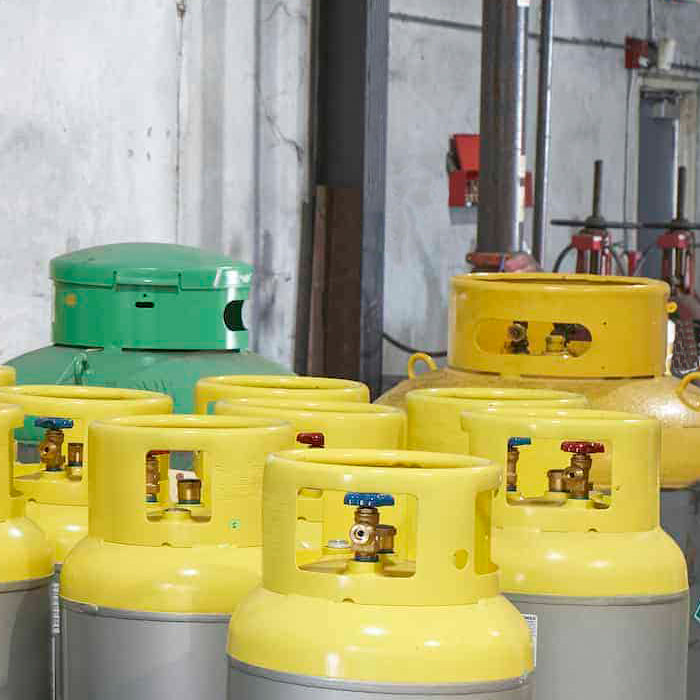321-245-1400
321-245-1400

In the HVAC industry, sustainability is not just a trend but a critical component of responsible business practices. HVAC professionals are uniquely positioned to make significant environmental impacts through effective refrigerant management. Refrigerant recovery is a crucial process that helps reduce greenhouse gas emissions and promotes eco-friendly operations.
Refrigerant recovery involves safely and efficiently removing refrigerants from cooling systems during servicing, maintenance, or disposal. Instead of allowing these refrigerants to escape into the atmosphere, recovery ensures they are appropriately contained and recycled for future use.
Integrating refrigerant recovery into operations is an environmental imperative for those in the HVAC industry. By adopting sustainable practices like refrigerant recovery, companies can enhance their climate responsibility efforts, reduce operating costs, and comply with increasingly stringent environmental regulations.
Many refrigerants, such as hydrochlorofluorocarbons (HCFCs) and hydrofluorocarbons (HFCs), have potent greenhouse gas properties that directly contribute to global warming. Recovering and recycling these refrigerants significantly reduces the HVAC industry's carbon footprint and mitigates environmental impact.
Proper refrigerant management helps preserve the ozone layer. By preventing the release of ozone-depleting substances, HVAC professionals contribute to the ongoing recovery of the ozone layer and safeguard the health of ecosystems worldwide.
As environmental regulations evolve and become more stringent, HVAC businesses face increasing pressure to comply with emissions standards and waste management requirements. Failure to adhere to these regulations can result in fines, legal liabilities, and reputational damage.
Implementing refrigerant recovery practices mitigates regulatory risks and demonstrates compliance with environmental laws. Maintaining meticulous refrigerant usage, recovery, and disposal records ensures transparency and accountability, safeguarding against potential legal and financial repercussions.
Adhering to best practices and industry standards is essential to maximizing the effectiveness of refrigerant recovery initiatives, which includes investing in state-of-the-art recovery equipment, providing comprehensive training for maintenance staff, and partnering with certified refrigerant reclamation facilities.
Preventive maintenance and leak detection are also critical components. Regular inspections and timely repairs can minimize refrigerant loss and enhance system efficiency, reducing environmental impact and operational costs. By conducting regular inspections and repairs, HVAC professionals can identify and address leaks promptly, reducing environmental impact and optimizing operational performance.
Collaborating with experienced professionals in refrigerant recovery can further enhance the efficiency and effectiveness of recovery initiatives. Refrigerant recycling experts can provide valuable insights, advanced technologies, and specialized services to help achieve sustainability goals. They can assist in navigating regulatory complexities and offer tailored solutions, ensuring compliance and environmental responsibility.
Along with utilizing experts, state-of-the-art refrigerant recovery equipment is another way to improve refrigerant recovery practices. Innovations such as advanced recovery machines, leak detection systems, and real-time monitoring tools can significantly enhance the accuracy and efficiency of refrigerant management.
As society prioritizes environmental responsibility and climate action, HVAC professionals must embrace sustainable solutions like refrigerant recovery to remain competitive, resilient, and responsible stewards of the planet. Integrating refrigerant recovery into daily operations leads to a greener, more sustainable future.